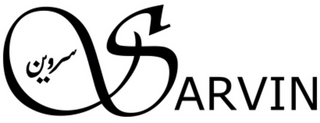The notion that style doesn't have to be sacrificed for sustainability is becoming the bones of the industry. Consumers are growing in awareness and intrigue in regards to how their clothes are manufactured. They are no longer looking to purchase for the price but quality. The fashion industry produces 10% of all humanity’s carbon emissions and is the second-largest consumer of the world’s water supply, with statistics such as these coming to light, it is vital for fashion labels today to start producing sustainable and ethically made clothing.


Sustainable fashion is the production of garments through eco-friendly methods and ethical manufacturers. It is the blend of premium and ethically fabricated materials with longevity and quality. Brands are slowly merging both accessibility and longevity to democratise sustainable fashion. As a rule of thumb, the more transparent a company is towards their sustainability practices and brand purpose, the more sustainable they usually are! At Sarvin we strive to ensure we are playing our role in the slow fashion revolution. From our Zero Waste policy & collaborations to our Sustainable design process and eco-friendly recycled collection. We are strong believers in applying our innovation to diminish waste wherever possible.

_________
What is your style?
Fast fashion has transformed us into a society of regimented ‘followers’, obeying and following every single trend, anticipating the next, without a single thought as to whether it reflects our individuality. By shopping sustainably and practicing conscious consumption, you are spending wisely on clothes that actually reflect your identity and will be valuable for years to come. Following every fast fashion trend is not only damaging to the bank but damaging to the soul!
_________
Less IS MORE
Unfortunately, modern-day fashion consumption has normalised society into shifting towards short product life cycles with the minimal economic investment required. Whilst this appeals to our short term ego, the item becomes forgotten within a few weeks. The equation is simple: the more we buy, the more we throw! Alternatively, sustainable brands focus on quality, using fabrics that last years emphasising timeless designs, teaching us to love and cherish our clothes again.
_________
Positively People Pleasing
Low costs for you can mean high costs for workers in developing countries. Under fast fashion circumstances, children in third world countries resemble modern day slaves in order to meet the demand of a first world society. The question remains to society; who made your clothes? Sustainable fashion ensures fair wages, fair trade certifications and access to good working conditions- without a looming guilty conscious.


The New Circular Economy
The year 2020 also arose with the popularity of second-hand shopping channels. Which have blossomed, platforms like Vestiaire Collective, Farfetch Second Life and Hardly Ever Worn champion the transition of fast fashion into slow fashion .The rise of Depop further reflects Gen-Z’s desire to shop more sustainably. With 85% of textiles ushered into landfill, this popularity surrounding the Circular-first commerce trend is a fundamental element of the fashion industry reset.
Groundbreaking technology is also being introduced to create recycled, organic, and bio-fabricated materials, and the secondhand and consignment market is estimated to reach $64 billion by 2030. We like the sound of that!
_________
Circular thinking
An estimated 50 million tons of clothing are discarded every year, and most of it will not biodegrade in a landfill. Consider the time, energy and resources that are encompassed in this process.
Here at Sarvin, we place focal on reducing material waste in every way we can. Our partnered fabric company is the first V-Labelled textile producer globally. The European Vegetarian Union certifies their yarns to have corresponded with the European Vegetarian Label guidelines categorised in the Vegan V-Label. Hence, our Eco-friendly Collection is not only remarkable in design but alike in fabrication.
_________
Digital Developments
Copenhagen Fashion Week was a crucial yet remarkable event that conveyed the fashion week's extremity and the industry itself—considering that the travel to New York, London, Milan and Paris during ready-to-wear fashion month contributes a staggering 241,000 tons of CO2 emissions a year. This digital revamp narrated an event that was greener and accessible but certainty not at the cost of bursts of vibrance or beautiful garments. Hopefully, as we transition back to non-virtual fashion weeks, we will hold a new perspective of how we can act sustainably and foster new ways to achieve this.
January has been a month of reflection. Despite it coming to a close, let's not leave our thoughts behind nor our values. As consumers we are given the volition to play a fundamental role in changing how the fashion industry operates. We are a brand's muse. If we shift our purchasing habits, brands will echo our movement. The notion of committing is daunting; however, even by purchasing one item produced sustainability over an agile piece from a fast-fashion company. You have made a difference, as little as you may perceive it.
A concept that is rich in relevance is that as consumers, we have been conditioned to believe purchasing eco-friendly and organic food for high prices is justified. However, let’s make this view perceived in the context of garments. We are in, are you ?


